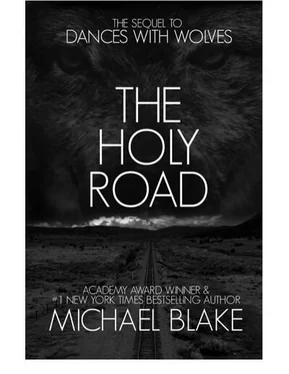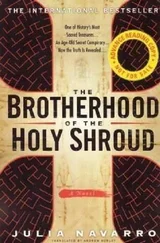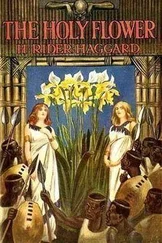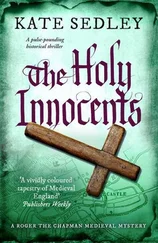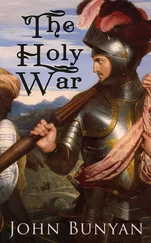Michael Blake - The Holy Road
Здесь есть возможность читать онлайн «Michael Blake - The Holy Road» весь текст электронной книги совершенно бесплатно (целиком полную версию без сокращений). В некоторых случаях можно слушать аудио, скачать через торрент в формате fb2 и присутствует краткое содержание. Год выпуска: 2011, Жанр: prose_military, на английском языке. Описание произведения, (предисловие) а так же отзывы посетителей доступны на портале библиотеки ЛибКат.
- Название:The Holy Road
- Автор:
- Жанр:
- Год:2011
- ISBN:нет данных
- Рейтинг книги:3 / 5. Голосов: 1
-
Избранное:Добавить в избранное
- Отзывы:
-
Ваша оценка:
- 60
- 1
- 2
- 3
- 4
- 5
The Holy Road: краткое содержание, описание и аннотация
Предлагаем к чтению аннотацию, описание, краткое содержание или предисловие (зависит от того, что написал сам автор книги «The Holy Road»). Если вы не нашли необходимую информацию о книге — напишите в комментариях, мы постараемся отыскать её.
The Holy Road — читать онлайн бесплатно полную книгу (весь текст) целиком
Ниже представлен текст книги, разбитый по страницам. Система сохранения места последней прочитанной страницы, позволяет с удобством читать онлайн бесплатно книгу «The Holy Road», без необходимости каждый раз заново искать на чём Вы остановились. Поставьте закладку, и сможете в любой момент перейти на страницу, на которой закончили чтение.
Интервал:
Закладка:
Michael Blake
The Holy Road
The Sequel to Dances With Wolves
To all the warriors who died.
And to those who live on. .Marianne
Quanah
Monahsetah
Lozen
Chapter I
The scalp was red and thick but what made it especially extraordinary was its great length. It was the longest shock of hair anyone had ever seen, so long that its owner had to sit on the shoulders of another warrior to tie it to the rafters of his lodge. Had it not been tied so high the hair would have dragged the ground and people living in the lodge would have been forever brushing it aside, reducing it from a vaunted trophy of war to an unwanted, everyday annoyance.
Still, it fell to a point about chest high and Wind In His Hair's wives grumbled about its presence from the moment it assumed a prominent place among the many other scalps hanging in their large home. The grumbling was something the wives did under their breath and out of earshot of their husband for they knew that to complain openly about such a thing would cause unnecessary trouble. And it would be unfair to a husband who had sired so many healthy children, had unfailingly provided an abundance for his family, and was widely revered as the highest-ranking member of the elite warrior society known to all as the Hard Shields, the combat unit that viewed protection of the village and its people as their most sacred responsibility.
They might challenge their husband on the proximity of the family lodge to water, or the sleeping habits of the children, or the preparation of a feast, but they kept their misgivings about the white woman's scalp to themselves. How their husband displayed his souvenir, taken in honorable combat at the cost of his own disfigurement, was simply none of their business.
Nor was it the business of anyone else in the village, and, like the wives of Wind In His Hair, every member of the community kept his feelings about the scalp hidden from public view. But the unvoiced opinions only added to a sense of dread that had been growing steadily among them for years. The presence of the white woman's scalp in the village served as a constant reminder of the strange, unfathomable threat that had come to dominate their lives. It was the worst kind of threat a people can endure, an invisible horror that disturbs good sleep, confuses clear thinking, and makes the steadiest heart skip with odd, little ripples of fear at what tomorrow might bring.
Even Wind In His Hair was not immune. In the deepest reaches of his instinctive, reactive soul, a soul as purely Comanche as any that had ever been born, he could feel occasional and upsetting echoes. He had always slept well, but in the last year he often woke inexplicably in the night. And sometimes as he lay blinking in the dim light of his fire's embers, his eyes would pick up the outline of the long, red-haired scalp and he would wonder how many white people he might have to kill to safeguard the only life he knew.
Having no answer grated against his mind, and it was only when he had reassured himself that an answer was not important, that his only responsibility in this life was to be a father, a husband, and a warrior without fear, could he turn on his side and let sleep descend once again.
Chapter II
Ten Bears, too, had trouble sleeping, a condition that had been unknown to him for most of his long life. The anxiety that dogged all of his band was a heavy burden for an old man already weighted down with increasing infirmity.
He could no longer ride, and when camp was moved he was forced to travel like a piece of baggage sprawled on a travois. Having outlived half a dozen wives, that last of whom had died the spring before, he depended on his daughters to boil his meat and tend his fire. The eyes that had served him through so many snows were as hazy as twilight and he knew that they would never grow brighter, only darker. He tired easily and would doze between daily interviews in which he arbitrated disputes, listened to complaints, offered advice, or fielded questions about news from the wider world. He talked less and less, preferring to meditate carefully on the words of others before uttering brief, concise opinions packed with wisdom.
As his sight diminished, his hearing seemed to grow sharper, so sharp in fact that he began to hear the words of others just as he heard the wind waving through the grass, or the percussive rhythms of rainfall against the walls of his lodge. He had begun to listen to an eternal communication beyond mere language that enabled him to hear into a person, to hear the heart and lungs and blood.
He had stumbled onto this wondrous gift of concentration in an effort to stay awake during conversations. For a time he had fallen into a pattern of losing consciousness in mid-discussion, a development that chagrined him so greatly that he wished for death to spare him further embarrassment. But despite his longing for release from the rigors of life, the old man was unable to throw himself away. If a generation ago he had wanted to make such an exit, he could have done so by simply refusing to move on the breaking of camp. His lodge would have been struck around him and he would have been left to sit like a shelled pea on the ground, a cup of water and a bowl of food beside him. The sun would glare down upon him, the wind would rush over his wrinkled flesh, and eventually he would recline on his back, never to rise again, content with the thought that soon he would melt back into the body of his mother the earth.
Such a death seemed a luxury now. He imagined it in the same way a boy dreams of winning honors in battle or a girl looks forward to making a family of her own. But no matter how much he wished it to be, Ten Bears could not take the hand death had extended. The present generation was the most challenging he had ever known in his life as a Comanche. In any other era his time would come and go and his own earthly presence would be replaced by another, just as it had happened with the Comanches since they first appeared on the earth. But now the great wheel of life seemed to be slowing and whether it would continue to revolve or stop completely was impossible to know. The whole of Comanche life was hanging in the balance, and so long as it did Ten Bears willed his tired lungs to draw breath. If he were to begin his long journey across the stars today, he would leave his people to be scattered like chaff in the coming whirlwind. So he stayed, listening carefully to the blood of all those who came before him.
When the sun was starting down, one of his granddaughters, Hunting For Something, usually came by with a small bowl of buffalo and berries which she herself had pounded into a mush. If the day was fair, Ten Bears would wrap the food in a piece of cloth, grab up his walking stick, and stand listening at the entrance of his lodge, waiting for a lull in the rhythm of human traffic outside. At the appropriate moment Ten Bears would bend his creaky frame and start into the sunlight, charting a course for the open prairie and whatever scant stand of trees lay by a spring or pond or stream close to camp.
No one interrupted these sojourns. The entire community knew that Ten Bears had somehow acquired the ability to “hear blood” and that for him to maintain the gift it was necessary that he be free of distraction. When people saw him stride stiffly out of camp they let him go, in the knowledge that surely he was sifting weighty and mysterious thoughts.
No one could have guessed that Ten Bears' primary objective was to find a secluded spot where he could nap uninterrupted. But by the time he reached his place of peace the idea of napping usually gave way to a sense of wonder that his old legs had been able to carry him this far from camp yet again.
Читать дальшеИнтервал:
Закладка:
Похожие книги на «The Holy Road»
Представляем Вашему вниманию похожие книги на «The Holy Road» списком для выбора. Мы отобрали схожую по названию и смыслу литературу в надежде предоставить читателям больше вариантов отыскать новые, интересные, ещё непрочитанные произведения.
Обсуждение, отзывы о книге «The Holy Road» и просто собственные мнения читателей. Оставьте ваши комментарии, напишите, что Вы думаете о произведении, его смысле или главных героях. Укажите что конкретно понравилось, а что нет, и почему Вы так считаете.
